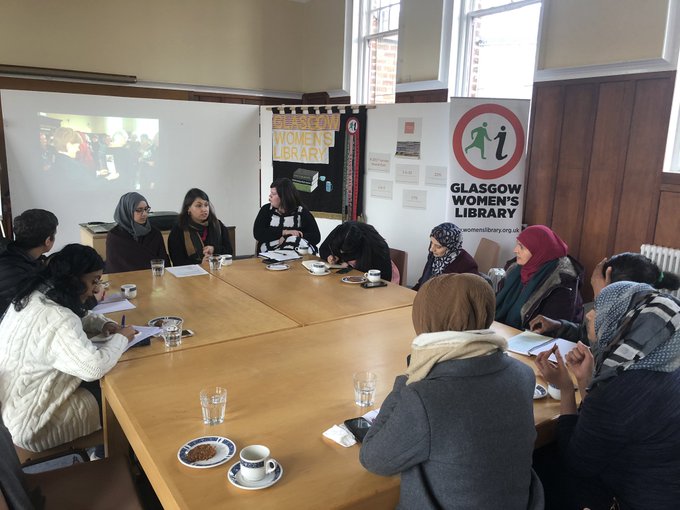I attended one of the first meetings of Side by Side Scotland – an international movement of women of faith coming together for gender justice which is soon launching in Scotland as part of Scottish Interfaith Week 2019 #SIFW19.
The key focus of the meeting was looking at how faith groups can use gender justice to move forward and empower people of all genders, and understanding how it is a community issue that impacts everyone as well as generations to come not just those fighting for it now.
In order to do this, it was agreed that systems needed to be changed. However, the way we make that change is something that perhaps needs to be looked at more closely and is not universal for all groups of faith or for all areas around the world. As, Valerie from Christian Aid explained,
“Each country has its own identity, own needs as well as their own rights to strive for and change when it comes to gender justice.”
This applies to both the developed and developing countries. Recognising that the contemporary feminist approach to gender justice does not always work in faith communities, and that new approaches should seek to understand the cultures and traditions when enforcing change. Certain existing dynamics work, and if that involves men being at the head of everything, then it doesn’t mean it is something that we necessarily have to change but can at least work with. It is important to raise the profiles of women but also to look at the effects this in turn has on men in the community, both negative and positive and find ways to benefit both.
“Gender justice looks different depending on backgrounds and beliefs.” – Church of Scotland representatives.
After using diaries to document the work done by each family member, on a trip to Sierra Leone, Christian Aid found that women as expected did a disproportionate amount of work and families would benefit if men did more. But what was interesting was the men were more willing to do non-traditional gender working roles, if seen as acceptable by their Faith group, especially if being actively done so by members of the faith. Another interesting point that came out was, that many of the men had said that they were happy to do this type of work, unless their mothers were there, showing how women often even oppress each other and how the oppression of women has become a norm in society. It is important for women to lead to take some leadership positions in faith communities, because with just men in these positions we see not only an abuse of women but an overall abuse of power.
“Gender justice is about rebalancing an imbalance.”- Saira Dar
Male dominance in faith institutions allow for the actual empowerment of women in religious texts to be hidden or interpreted differently. This keeps women oppressed and in poverty with a lack of resources and creates a barrier for them to question things or make decisions in society.
What can Faith groups do? One area targeted by the Church of Scotland is advertising and the way it enforces masculinity and femininity and how this can be adapted when putting up posters and such in faith buildings. Working with trans youth and looking at a pyramid of sexual violence and prevention are other key areas they are targeting. Tackling period poverty is essential. So many girls are suffering from health problems after being unable to change sanitary product as often as should or missing out on education. They are now often available in public bathrooms for free, however it may be useful for faith communities to extend this to making them available in places of worship or giving them out at charitable food banks.
Overall this was a great event and I left with the clear feeling that the aim of gender justice through faith is not to treat everyone the same, but to acknowledge the different paths people are on and tailor a change in attitudes of gender justice as so.
Zahra Krndic – #SIFW19 Ambassador





